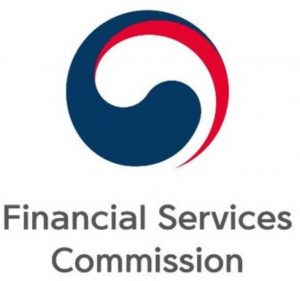South Korea’s top financial regulator has exclusively shared with news.Bitcoin.com information about six cryptocurrency-related bills that have been submitted to the National Assembly. The most recent bill seeks to protect the rights of crypto owners and to ensure the safety and reliability of crypto transactions.
Also read: Indian Supreme Court Moves Crypto Hearing, Community Calls for Positive Regulations
Six Crypto-Related Bills
South Korea’s top financial regulator, the Financial Services Commission (FSC), exclusively shared some information with news.Bitcoin.com on Thursday about various crypto-related bills that have been submitted to the National Assembly. A spokesperson for the regulator said:
There are six proposals made by the National Assembly members … [however] there is no crypto-related bill submitted by the FSC to the National Assembly.
 While each bill contains unique proposals for crypto regulation, all of them include clauses for user protection such as damage compensation, prohibition of money laundering and market manipulation, use of nonpublic information, and disclosure requirements.
While each bill contains unique proposals for crypto regulation, all of them include clauses for user protection such as damage compensation, prohibition of money laundering and market manipulation, use of nonpublic information, and disclosure requirements.
The South Korean government has not announced any follow-up measures relating to cryptocurrencies since it implemented the real-name system in January. In addition, initial coin offerings (ICOs) have been banned domestically since September last year.
First Crypto Bill
The FSC spokesperson confirmed that the first crypto-related bill submitted to the National Assembly is an amendment to the Electronic Financial Transactions Act introduced in July last year by Rep. Park Yong-jin.

The bill presents that, with the rapid rise in crypto transactions, users have been hacked and “investment fraud has been increasing due to multi-level sales.” Noting the lack of “definition for virtual currencies and regulations for virtual currency transactions in the current law,” it proposes definitions for virtual currency, virtual currency handling business, virtual currency brokerage business, virtual currency issuer, and virtual currency management business. The bill also proposes a few measures to protect crypto users including restricting transaction methods.
Registering With FSC
 The next two bills were submitted to the National Assembly in February. The first of the two was submitted by lawmaker Jung Tae-ok. It “institutes a virtual currency exchange system to guarantee freedom of business and protect investors,” Yonhap News Agency described.
The next two bills were submitted to the National Assembly in February. The first of the two was submitted by lawmaker Jung Tae-ok. It “institutes a virtual currency exchange system to guarantee freedom of business and protect investors,” Yonhap News Agency described.
This bill defines and proposes obligations for crypto-related entities including “virtual currency trading business, virtual currency account management business, and virtual currency assistance business,” according to the Korean government’s website. It further states:
Those who want to operate a virtual currency trading business or a virtual currency account management business shall be approved by the Financial Services Commission.
- Advertisement -
The next bill, submitted by lawmaker Jung Byung-guk, proposes to regulate cryptocurrency transactions. In addition to user protection measures, this bill seeks to require all persons in charge of a cryptocurrency transfer business — including trading, brokerage, and management — to register with the FSC.
Other Bills
 The fourth bill submitted to the National Assembly is the Act on the Reporting and Utilization of Specified Financial Transaction Information. It was submitted by Rep. Je Youn-kyung of the ruling Democratic Party.
The fourth bill submitted to the National Assembly is the Act on the Reporting and Utilization of Specified Financial Transaction Information. It was submitted by Rep. Je Youn-kyung of the ruling Democratic Party.
The fifth bill, submitted in September by lawmaker Ha Tae-keung, proposes more amendments to the Electronic Financial Transactions Act.
It calls for crypto businesses that sell, buy, broker, exchange, manage, and issue cryptocurrencies to obtain approval from the FSC. “In order to ensure the safety and reliability of the currency transaction, it is necessary to establish and implement technological, physical and administrative security measures in accordance with the standards set by the Financial Services Commission,” the bill states.
The sixth bill, submitted in November by lawmaker Kim Sun-dong, is known as the Digital Asset Trade Promotion Act. According to the text of the bill:
The purpose of this law is to protect the rights of digital asset owners and to ensure the safety and reliability of digital asset transactions and to contribute to the development of the national economy by stipulating matters concerning the transactions of digital assets.
What do you think of all these South Korean crypto-related bills? Do you think more regulations will be introduced soon? Let us know in the comments section below.
Images courtesy of Shutterstock and Park Yong-jin.
Need to calculate your bitcoin holdings? Check our tools section.
Previous Articles:
- 2019: The Year Digital Securities Offerings Become the New ICOs
- Bounties and Responsible Disclosure Bolstered Crypto Infrastructure This Year
- Five New Year’s Resolutions to Improve Your Crypto Life in 2019
- 2019: The Year We Might (Finally) See Better Blockchain UX?
- Billions Living Under Authoritarian Regimes Need Bitcoin Says Human Rights Activist

